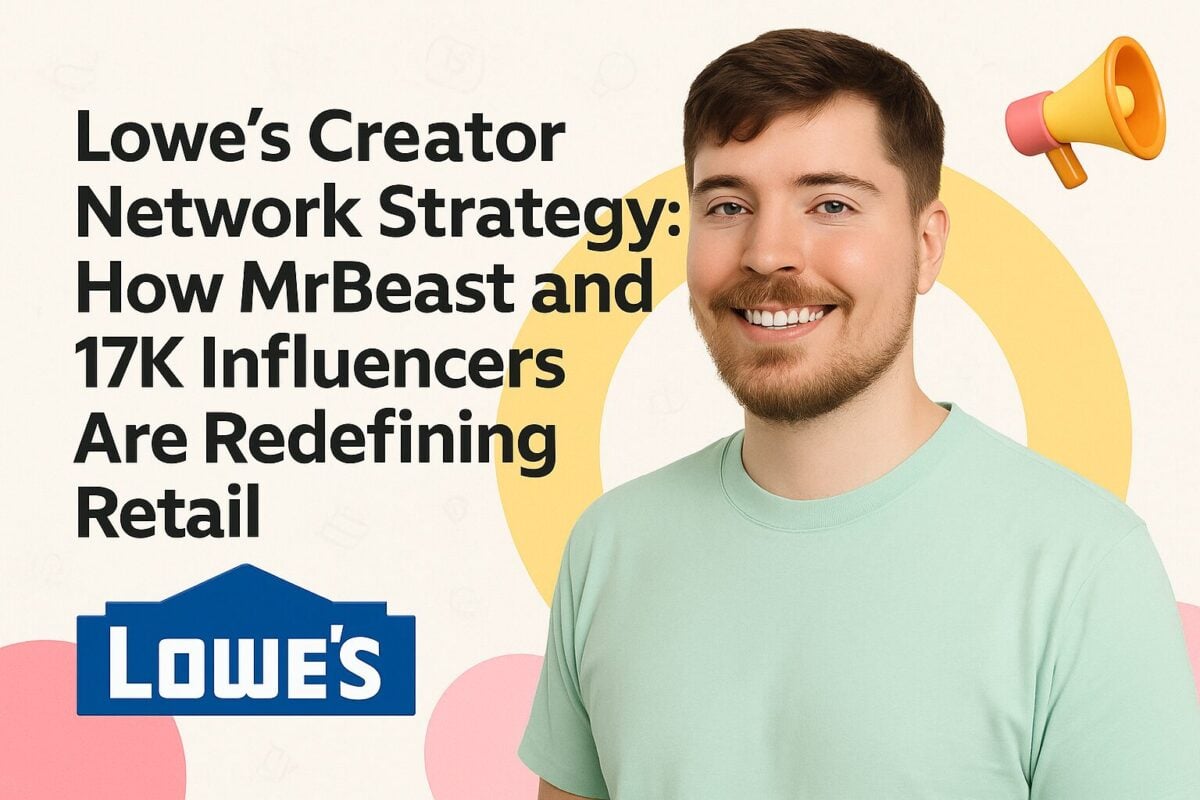At the time of writing, the leading freelance work marketplace, Upwork, had 1,528 influencer marketing jobs listed. Some of these were only tangential to influencer marketing, e.g., social media managers, but it is nonetheless a good indication of the strong demand for influencer marketing specialists. And these jobs aren’t for people wanting to become influencers – Upwork isn’t an influencer marketing agency.
No, most of these jobs are for firms wanting talent to coordinate and run their influencer marketing activities.
As indicated in our latest influencer marketing benchmark report, the influencer marketing industry is expected to grow to approximately $24 billion in 2024. A staggering 18,900 firms offered or specialized in Influencer Marketing services. With figures like these, it should be no surprise that there are now many behind-the-scenes jobs available for those wanting to be a part of the influencer marketing industry.
In this post, we are going to take a look at some of the most common roles available that relate to influencer marketing. The selection on offer at any firm will depend on its size, dedication to influencer marketing, and levels of hierarchy within its marketing department.
- Influencer Marketing Jobs from the Influencer Perspective
- 1. Social Media Influencer
- 2. Influencer Talent Manager or Agent
- Influencer Marketing Jobs from a Business Perspective
- 3. Influencer Marketing Coordinator
- 4. Social Media Marketing Manager
- 5. Influencer Marketing Manager
- 6. Community Marketing Manager
- 7. Influencer Strategist
- 8. Director of Influencer Marketing
- Wrapping Things Up
- Frequently Asked Questions
Influencer Marketing Jobs from the Influencer Perspective
1. Social Media Influencer
Influencers are unlike all the other positions we cover in this post. You can’t simply brush up on your CV and apply for an influencer’s job. Instead, you have to earn that title. And, once you have reached that level of popularity, you can justifiably consider it your full-time job, just like any of the more traditional roles we analyze in this article.
We have previously shared seven steps to becoming a social media influencer. If you ultimately wish to make that your job, you should begin by doing the following:
- Select Your Niche
- Optimize Your Social Media Profiles
- Understand Your Audience
- Create and Post Relevant Content
- Be Regular and Consistent
- Engage With Your Audience
- Let Brands Know You’re Open to Collaborations
Remember that influencers don’t have to have millions of followers to interest brands. Many businesses prefer to work with nano and micro-influencers. Our most recent benchmark survey found that 39% of brands prefer nano-influencers (1K-10K followers) as their most likely partners, followed by 30% working with micro-influencers (10K-100K).
You can gain work as an influencer with as little as 1,000 followers depending on your niche if you have a good enough relationship with your followers.
Once you’ve been selected by a brand for an influencer campaign, you will have to make, and share agreed content relating to their products. In many cases, they will want you to make posts in a similar style to your normal content.
You will have to follow any requirements they give you about these sponsored posts, however. Remember, that their main purpose for partnering with you is so they can take advantage of any social clout you may have with your audience. However, your audience will expect you to always be authentic and honest, so don’t sign up for brands you don’t like or feel are inappropriate for your audience.
2. Influencer Talent Manager or Agent
Average Salary (as calculated by Glassdoor): $132k/yr.
Influencer talent managers and agents act as advocates for their influencer clients. They help find suitable opportunities for the influencers and ensure that the influencer receives an appropriate level of remuneration.
To be successful, an influencer marketing manager will need strong negotiation, project management, interpersonal, and communication skills. They will also need a solid understanding of all social media platforms, influencer marketing techniques, and industry trends.
Some of the most common tasks required of an influencer talent manager or agent include:
- Discovering and recruiting new influencer talent
- Overseeing influencer campaigns from end to end
- Reaching out to brands targeting suitable niches
- Contract negotiation
- Acting as a go-between between your influencers and brands
- Helping creators set and meet their goals
- Tracking and analyzing influencer metrics
- Ensuring your influencer clients deliver content as required.
There are some differences between influencer talent managers and influencer agents. Both play a strategic role in the careers of influencers but take on some different responsibilities. Influencers hire managers to help deal with brand deal flow and advise on the influencer’s career. Influencer talent managers negotiate with brands, understand contracts, keep the influencer on track with projects, and help them achieve their larger goals.
Influencer talent agencies tend to be offshoots of the big Hollywood talent agencies, so are most likely to work with celebrities. Influencers mainly use agents when they have larger aspirations, for example breaking into television or film. In that case, they need an agent by law (in California) to negotiate contracts. Their influencer talent manager, however, is still likely to help with the day-to-day coordination of their career.
Influencer Marketing Jobs from a Business Perspective
Be aware that every company has a different way of naming its marketing positions. Smaller businesses may have a flat structure where only one or a few people undertake all influencer marketing activities. Indeed, they may give responsibility for organizing influencer marketing to a more general role, such as Social Media Marketing manager or Community Marketing Manager.
The roles we include here are only a general approximation of the positions you will find in large companies. The smaller your organization, the more of these rules you will have to flatten into one position. If you’re looking to apply for an influencer marketing job, you should always read the specific job description to understand what the company will require of you.
3. Influencer Marketing Coordinator
Average Salary (as calculated by Glassdoor): $67k/yr.
This is a relatively entry-level position, allowing you to gain some influencer marketing experience. Some of the tasks you would typically be expected to do include:
- Influencer discovery, i.e., finding suitable influencers who could meet your company's needs. If your company uses an influencer marketing platform, you will have the job of using it to search for suitable influencers.
- Reaching out to potential influencers.
- Onboarding new influencers into your influencer marketing program.
- Acting as the main point of contact for most influencers with whom you work
- Preparing content briefs
- Monitoring content, ensuring it meets your needs.
- Keeping up to date with social media trends (particularly those relating to your target audience).
4. Social Media Marketing Manager
Average Salary: $67k/yr.
You might wonder why we have included a Social Media Marketing Manager in this article, as it doesn’t necessarily imply any influencer marketing. However, some firms expect their social media marketing managers to coordinate any influencer marketing the business is involved in, rather than employing influencer specialists.
The average salary for a Social Media Marketing Manager is higher than that for an Influencer Marketing Coordinator, possibly because you will be expected to do both jobs – operating your business’s social accounts, in addition to most of the influencer marketing tasks we looked at above – if you don’t have specialist influencer marketing staff members.
In that case, in addition to the influencer marketing tasks we’ve outlined, a Social Media Marketing Manager will need to:
- Create, edit, and schedule content for all the social media channels your brand uses.
- Work with stakeholders to gain approval for content where necessary.
- Develop and maintain a social media calendar.
- Analyze and report on the progress of each social post.
- Monitor and engage on each of your social channels.
- Track and collect all UGC about your brand, repurposing much of it.
- Keep up to date on current social media practices and trends.
- Work with any employee and customer advocates who share content on behalf of your brand.
5. Influencer Marketing Manager
Average Salary: $115k/yr.
If your business has the funds to employ more than one Influencer Marketing Coordinator, you are likely to also have an Influencer Marketing Manager who takes responsibility for managing the influencer marketing team. Typical responsibilities for an Influencer Marketing Manager include:
- Managing relationships with creators and sometimes clients (particularly if you’re an influencer marketing agency).
- Leading a team of influencer Marketing Coordinators and working with Social Media Marketing Managers.
- Determining the processes your team needs to follow.
- Take a major role in creating and managing creator briefs.
- Create resources to assist creators.
- Collaborate with other departments within your organization.
- Scale your influencer programs.
Some smaller firms merge the jobs of Influencer Marketing Coordinator and Influencer Marketing Manager into one. They will often use the Influencer Marketing Manager title, but the job description reads more like what we have written for the Influencer Marketing Coordinator. In this case, you may be a one-person department, managing yourself as you discover suitable influencers and coordinating their activity.
6. Community Marketing Manager
Average Salary: $86k/yr.
Community Marketing Managers take responsibility for creating marketing campaigns to grow, engage, and retain a business's community. Influencer marketing will probably be just a small part of their role. Their main interest is building an engaged community for the brand’s social accounts, and influencers can make good recruiters for this cause.
Community Marketing Managers generally take responsibility for member growth, member engagement, and member retention.
Typical job responsibilities include:
- Developing monthly content plans and calendars or working with specialist teams (to generate relevant content.
- Maintaining strong relationships with the brand’s community.
- Interacting closely with community members, leads, and customers.
- Monitoring and responding to activity on social media and other community platforms.
- Planning and executing community events.
7. Influencer Strategist
Average Salary: $108k/yr.
An influencer strategist is a relatively senior position in a firm that utilizes influencer marketing. If you’re employing an Influencer Strategist, it’s obvious that you are taking your influencer marketing seriously.
Influencer strategists need an excellent knowledge of the influencers in your sector, and the level of impact they have on your audiences. Typical job responsibilities for an Influencer Strategist include:
- Creating comprehensive influencer marketing campaigns designed to reach various goals. They will place a close eye on data relating to each campaign.
- Working with Influencer Marketing Coordinators to find the most suitable willing influencers you can engage within budget.
- Manage relationships with creators.
- Use campaign metrics to determine whether particular influencers are of value to campaigns.
- Tracking, analyzing, and reporting the results of each campaign.
- Keeping up to date on influencer marketing trends, so you are always ready to create the next campaign.
8. Director of Influencer Marketing
Average Salary: $280k/yr.
As you can tell by the average salary level of this role compared to other jobs, a Director of Influencer Marketing is the most senior role available for somebody focusing solely on influencer marketing.
The most common responsibilities of a Director of Influencer Marketing include:
- Managing a team of influencer marketers.
- Collaborating with other senior directors/managers to develop overall marketing plans.
- Oversee the relationships established between influencers and your team.
- Develop, execute, and report on influencer marketing campaigns. Examine how things have gone compared to your goals.
- With the assistance of your team, create a forward-thinking influencer marketing strategy.
- Determine how to scale your influencer marketing program where you see evidence of success.
- Report to key stakeholders.
- Keep up to date with the latest content, social media, and influencer marketing trends.
Wrapping Things Up
Sometimes influencers gain their job almost by accident. They start a social media channel, make content, and before long they find themselves popular. For example, Hank and John Green, the Vlogbrothers, started their YouTube channel as an experiment in non-textual communication between each other for the year of 2007.
However, 17 years on they have 3.79 million subscribers and happily make a living from their online activity. They had already become influential long before the term influencer was coined. And were both able to use that fame to carry out their pet projects along the way.
Some people, on the other hand, make a concerted effort to become influencers, following a strict plan with milestones and set goals. Sometimes these people succeed in their aim and build successful communities and have brands coming to them. Others don’t have the staying power, dropping by the wayside to try something else.
And then there are the many people who come into influencer marketing from the other side. They have roles as marketers within businesses and discover and run influencer campaigns – on behalf of a brand. And influencer marketing is sufficiently evolved nowadays to have specialist roles.
No longer do marketing staff have to be a jack-of-all-trades, taking on influencer marketing tasks too. It is not even uncommon now for larger businesses to employ a team of Influencer Marketing Coordinators beneath an influencer Marketing manager and maybe even a Director of Influencer Marketing too.
The days of influencer marketing being a novelty are long gone, and there are now many people who can claim to have “influencer marketing” in their job description.
Frequently Asked Questions
What are the main types of influencer marketing jobs?
The primary types of influencer marketing jobs include Social Media Influencer, Influencer Talent Manager or Agent, Influencer Marketing Coordinator, Influencer Marketing Manager, Community Marketing Manager, Influencer Strategist, and Director of Influencer Marketing.
What does a Social Media Influencer do?
A Social Media Influencer creates content that engages their audience and promotes brands. They must build a following, often by selecting a niche, optimizing their profiles, and consistently posting relevant content while maintaining authenticity.
What skills are required for an Influencer Talent Manager?
An Influencer Talent Manager needs strong negotiation, project management, interpersonal, and communication skills, along with a solid understanding of social media platforms and influencer marketing techniques.
What is the role of an Influencer Marketing Coordinator?
An Influencer Marketing Coordinator scouts for influencers, initiates contact, manages onboarding, oversees content creation, and ensures effective communication between influencers and the marketing team.
What qualifications are typically needed for influencer marketing jobs?
Most influencer marketing roles require a background in marketing or a related field, along with experience in social media, content creation, and campaign management.
What does a Community Marketing Manager do?
A Community Marketing Manager focuses on building and engaging with a community around a brand, often leveraging influencers to foster relationships and enhance brand loyalty.


